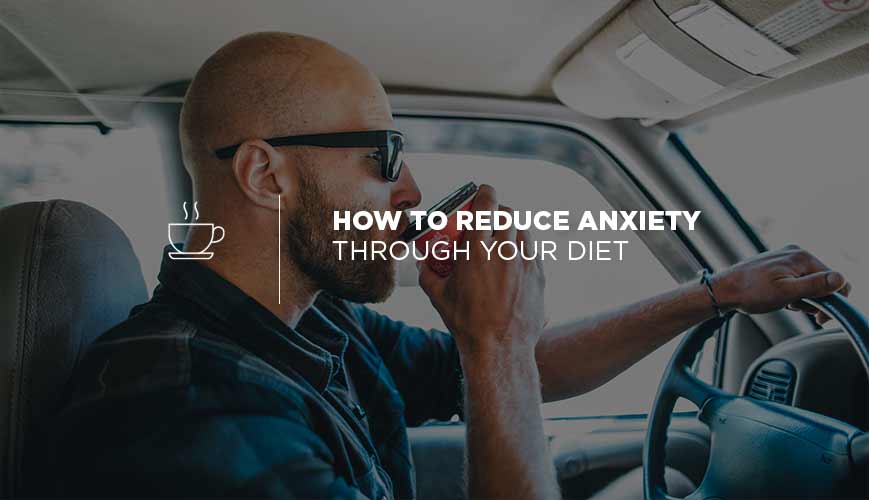How to Reduce Anxiety Through Your Diet
By Sara Butler

There’s a lot to be concerned about in the world. The elections in the United States, the pandemic, the economy -- it’s enough sometimes to make you just want to bury yourself in a bowl of macaroni and cheese and eat all your comfort food feelings.
You probably know that stress eating isn’t exactly the healthiest thing you can do, but did you know that some of the foods you may be eating are making your anxiety worse? It’s true!
If you’re one of the 40 million Americans who struggle with an anxiety disorder, then here are a few foods that can trigger anxiety and what the chiropractors at The Joint Chiropractic think you should be munching down on instead.
Caffeine
Many people need a little caffeine to get their day going. Actually, the National Coffee Association says that more than 60 percent of Americans start their day off this way by consuming an average of three cups of coffee daily.
While a little caffeine may not be a big deal, there’s a fine line between a little caffeine and an amount of caffeine that can make you feel nervous and anxious. Too much caffeine also has the undesirable side effect of reducing the amount of serotonin in your body. Lack of this feel-good chemical can make your mood depressed.
To put it into perspective, studies have found that people who consume 300 milligrams of caffeine per day have twice as much stress as those who don’t have as much caffeine. Considering a grande coffee from your favorite coffee chain can pack more than 300 milligrams of caffeine into a cup, you can see how easy it is to get too much.
Instead of coffee, reach for tea. There are herbal teas, with no caffeine, or tea varieties that help to give you a pick-me-up without the jitters, such as matcha.
Non-Dairy Creamer
Speaking of coffee, how many people like to add a little cream to their morning cup of joe? If you’re one of them, then beware of non-dairy creamers. These products are full of trans fats, which are terrible for your health and not recommended in any amount. Trans fats have also been linked to anxiety and depression.
If you like a little cream in your cup of decaf, then choosing whole milk or real cream is a much better option. You can also use soy milk or almond milk if you’re trying to stay away from dairy.
Added Sugars
You simply cannot avoid sugar all of the time since it’s naturally in many foods that are great for your mental and physical health. But added sugar is what you need to be on the lookout for since it can help drive up anxiety.
Added sugars will cause your blood sugar to spike and dip throughout the day, leaving you feeling worn out and moody. When your blood sugar tanks, your feelings of anxiety, stress, and depression can go up too.
If you consume too many added sugars, then you can find yourself feeling more irritable, sad, and worried than normal. So, consider avoiding foods with a lot of added sugars by checking the nutritional label. You may be surprised to find that foods such as condiments, white bread, and salad dressing can have high levels of added sugars.
If you have a sweet tooth you can’t deny, then try natural sugars in your diet such as those in fruit and naturally sweet vegetables, such as sweet potatoes.
You cannot control everything around you, but there are things that you can exercise complete control over that can have an impact on your stress and anxiety -- like what you eat. Be mindful that what you put into your body does have an impact on your overall health, and strive to make better choices among the chaos in the world.
The information, including but not limited to, text, graphics, images and other material contained on this page are for informational purposes only. The purpose of this post is to promote broad consumer understanding and knowledge of various health topics, including but not limited to the benefits of chiropractic care, exercise and nutrition. It is not intended to provide or be a substitute for professional medical advice, diagnosis or treatment. Always seek the advice of your chiropractor, physician or other qualified health care provider with any questions you may have regarding a medical condition or treatment and before undertaking a new health care regimen, and never disregard professional medical advice or delay in seeking it because of something you have read on this page.